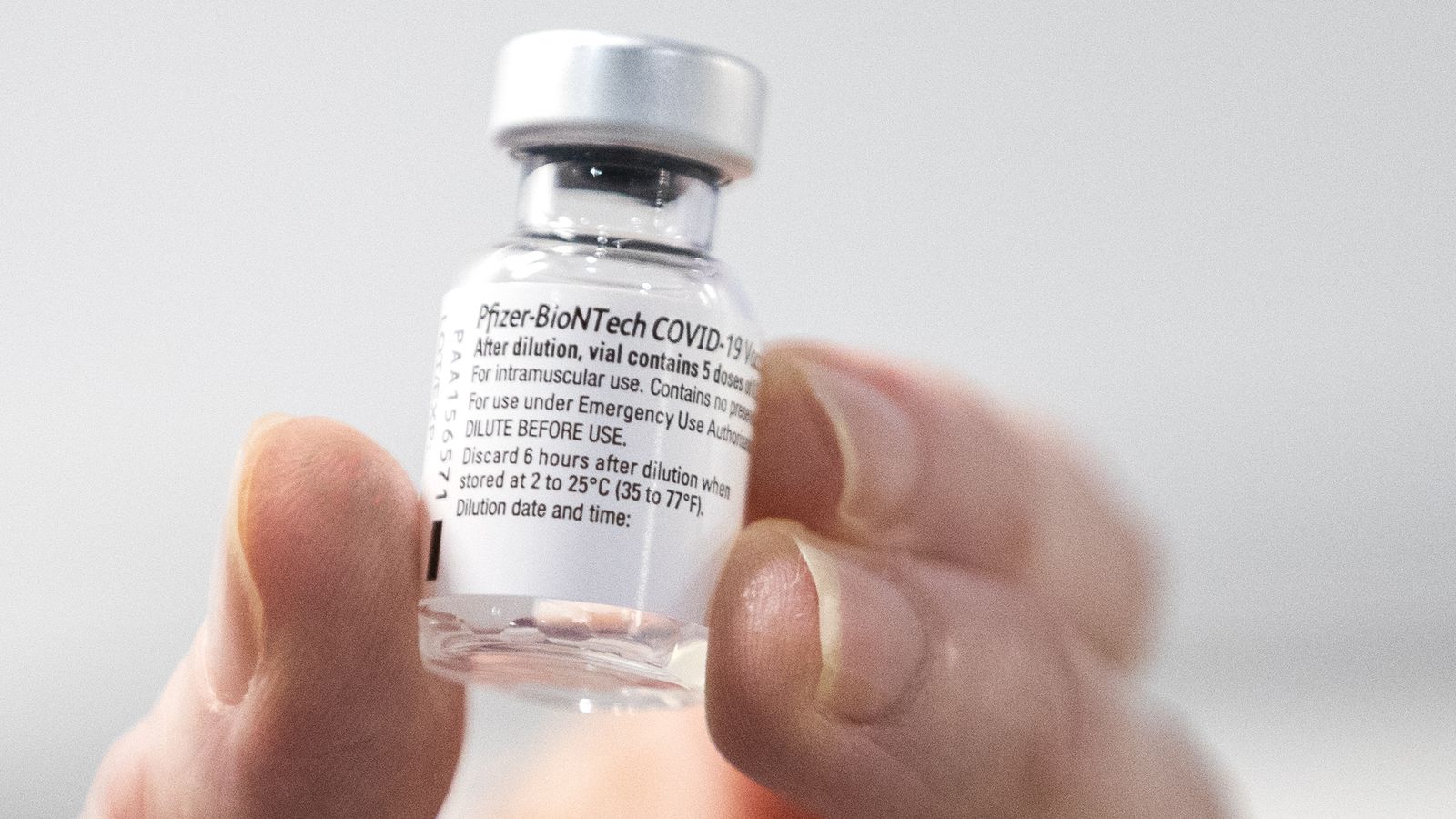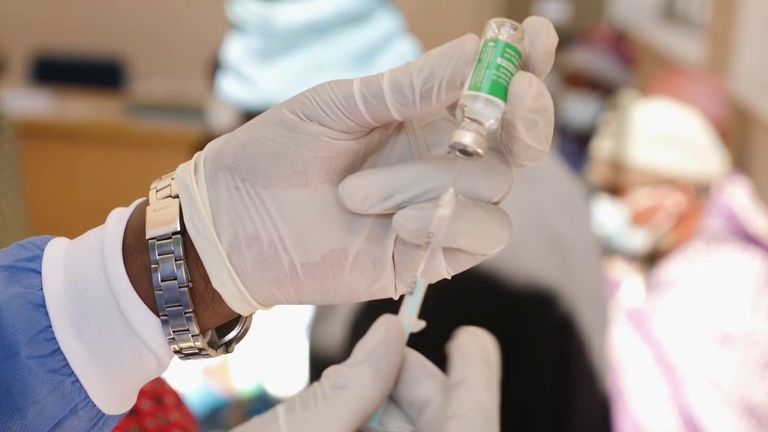The risk of being hospitalised with the Delta (Indian) variant of coronavirus is around double that of the Alpha (Kent) strain, but two vaccine doses still provide strong protection against it, new data suggests.
However, the level of protection against the Indian variant of COVID-19 may be lower than with the Kent variant, early research published in The Lancet suggests.
Live COVID updates from the UK and around the world
Data analysed from 5.4 million people in Scotland shows that the Delta variant is now the dominant form of the virus in the country.
There were 19,543 community cases of COVID during the period studied – 1 April to 6 June – with 377 hospital admissions where a specific variant was confirmed.
A total of 7,723 cases and 134 hospital admissions were found to have the Delta variant, which is thought to be about 60% more transmissible than the Alpha variant.
Researchers said that those with underlying conditions were more at risk of being admitted to hospital, as has been the case with previous variants.
They found that while vaccines reduced the risk of being admitted to hospital, strong effects against the Delta variant were not seen until 28 days after the first jab.
The Pfizer-BioNTech jab was found to provide 79% protection against infection from the Delta variant, compared with 92% against the Alpha strain, In community cases at least two weeks after the second dose.
The Oxford-AstraZeneca jab offered 60% protection against infection with the Delta variant – compared with 73% for the Alpha variant.
According to experts, the lower vaccine effect may reflect the fact that it takes longer to develop immunity after having the Oxford vaccine.
The study was funded by the Medical Research Council, UK Research and the Innovation Industrial Strategy Challenge Fund and Health Data Research UK (HDR UK) – and was supported by the Scottish government.
Professor Aziz Sheikh, director of the University of Edinburgh’s Usher Institute and EAVE II study lead, said: “Over a matter of weeks the Delta variant has become the dominant strain of SARS-CoV-2 in Scotland.
“It is unfortunately associated with increased risk of hospitalisation from COVID-19.
“Whilst possibly not as effective as against other variants, two doses of the Pfizer/BioNTech and Oxford/AstraZeneca vaccines still offer substantial protection against the risk of infection and hospitalisation.
“It is therefore really important that, when offered second doses, people take these up, both to protect themselves, and to reduce household and community transmission.”
Prof Sheikh told a press briefing that a delay in lockdown being eased, which is set to be announced by Boris Johnson later, would allow more people to get the increased protection that two jabs offer.
He said: “If there is a delay, I think that will give us the opportunity to widen coverage, which is incredibly important for those who at the moment have only got one dose.
“It will give the opportunity to increase the proportion of the population with two doses and then what we want is a period of time where people can actually maximise their immune responses.
“I think any sort of increase in the window of opportunity before lockdown measures are completely brought to an end, will be helpful, because that will help us to control community transmission.
“So, overall, I’d be very supportive of any delays that might be announced.”
Dr Jim McMenamin, COVID-19 National Incident Director for Public Health Scotland said: “These results provide early encouragement that two doses of either Pfizer/BioNTech or Oxford/AstraZeneca vaccines significantly reduce the risk of infection against both the Alpha or new Delta variants.
“They also show the vaccines offer protection against the risk of hospitalisation with the new Delta variant.
“Though no vaccine can be 100% protective, they provide the best protection against COVID-19 and it remains important to get both doses when offered.”
The researchers say that their work needs to be repeated in other countries and settings to increase confidence in their early findings.
They also say that due to the observational nature of the study, data about vaccine effectiveness should be interpreted with caution and a direct comparison between both vaccines is not possible.



